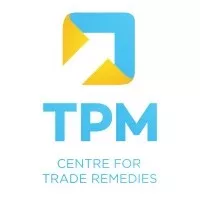- within Media, Telecoms, IT, Entertainment, Government and Public Sector topic(s)
During the last few years, interim relief in the form of measures have become an exception in India. While a significant number of investigations involved imposition of provisional duties over more than two decades since India started using these laws; the numbers have fallen significantly in last one decade. While the imposition of provisional duties has emerged as an exception in India, such provisional duties is an established norm in majority of the countries. In fact, the balance of convenience is generally in the favour of imposition of provisional measures, as in case the duty imposed is lower, or no duty is imposed; the importers would be eligible to refund of duties post the final determination. Thus, it is in the best interest of the stakeholders that provisional measures are invoked. This would also serve to address the injury being suffered by the domestic producers during the course of the investigation, while ensuring that no undue remedy accrues, should the final determination be lower.
The imposition of trade remedial measures in the form of anti-dumping duty or anti-subsidy duty involves a lengthy process, which starts with filing the application, and involves calling for information from various stakeholders, verification of the information provided and providing due opportunity to all stakeholders to defend their interests at various stages. Further, the investigation requires calculations of margins, and detailed examination of scope of product under consideration, domestic industry, injury and causal link. Additionally, the Directorate General of Trade Remedies (DGTR) has also started undertaking an economic interest analysis, in order to ascertain whether the recommended measure would have an adverse effect on public at large. Lastly, the measures are imposed by the Ministry of Finance. This process results in a time frame spanning much longer than a year. As a result, the domestic industry does not get relief against unfairly priced imports for such duration of the investigation and till time the Ministry of Finance issue orders for imposition. In such a situation, a provisional duty would provide immediate relief to the domestic industry, within a short duration of time, and mitigate the continuous injury being faced by them.
Timelines involved in trade remedial investigations
The investigation process defined above is generally a lengthy process. For instance, assume that an industry began suffering from dumping in April 2022. Since the DGTR requires that applications should be filed with a period of investigation of one year, it implies that the domestic industry must at least furnish data upto March 2023, that is for financial year 2022-23 in its application. An application is required to be filed within the end of four months from the end of the investigation period, that is, by June 2023. Normally, owing to extensive information required, most applicants are able to file applications very close to the deadlines. Thereafter, the Authority generally takes two months to initiate the investigation. This implies that, at the stage of initiation, already 18 months have lapsed since the period when the industry started suffering.
Post initiation, relevant information is called from the exporters, information provided by both domestic industry and exporters is verified, a public hearing is conducted with opportunity for written submissions and rebuttal submissions, and a Disclosure Statement is issued to allow parties an opportunity to defend their interests. It is only after these steps are completed that the DGTR is able to issue its final findings.
The law allows a period of one year for the completion of the investigation, which is further extendable by six months. While the DGTR has been making efforts to reduce the time involved in arriving at the final determination, a period of at least nine months can be considered reasonable time frame. Thereafter, the Ministry of Finance considers the final findings. The Ministry of Finance has a period of three months to consider the recommendations. In effect, this means that the domestic industry receives a relief from unfair competition after a total of 18 months after the investigation period, and after a total of 30 months from the time it started suffering injury. Therefore, an industry that started suffering injury due to unfair dumping in April 2022 would receive relief in, at best, September 2024.
Relief available under the law
The considerable time gap between the stage at which the industry starts suffering injury till the imposition of duty can lead to the injury to the domestic industry getting aggravated. In order to address such situations, the WTO laws and guidance provide a scope for early relief in terms of– (a) discretion to the Authority to consider shorter investigation period, of as low as six months; and (b) imposition of provisional measures, any time after expiry of 60 days from the date of initiation of investigation, (c) imposition of anti-dumping duty with retrospective effect. In effect, this would shorten the period of 30 months to only about 14-16 months.
However, under the Indian law, consideration of an investigation period shorter than one year is not permissible, except where adequate justification is provided1. Thus, the only provision available under the Indian law to allow effective and quick respite to the domestic industry is that of imposition of provisional duties. Even though the Rules provide for retrospective imposition of anti-dumping duty, and global jurisdictions, such as USA, have used this provision to remedy injury being suffered by the US industry, India has not imposed anti-dumping duty on retrospective basis so far.
Therefore, it would be in the larger interest of the applicant domestic producers to seek imposition of provisional measures, pending completion of investigation.
Legal requirements concerning imposition of provisional measures
Under the WTO Anti-Dumping Agreement, the Indian Customs Tariff Act and the Indian Anti-Dumping Rules, provisional duties can be levied, subject to the following conditions.
- An investigation has been initiated in accordance with the requirements of the WTO Agreement.
- Due notice of initiation has been given to all parties, with an opportunity to submit relevant information and make comments.
- The Authority has made a preliminary determination about the existence of dumping and consequent injury to the domestic industry.
- The Authority finds that such measures are necessary to prevent injury being caused during the investigation.
- If in the final determination, it is found that no duty needs to be imposed, or a lower quantum of duty is imposed; the excess duty collected would be refunded to importers.
Duration of the provisional measures
The provisional measures can be imposed after 60 days from the date of initiation of the investigation. Under the Indian law, the provisional measures can be imposed for a maximum period of 6 months, which can be extended by three months, for a total duration of 9 months. However, such period can be extended only if a significant number of exporters involved in the investigation agree to such extension.
It is interesting to note that in many instances, the exporters participating in the investigation seek multiple extensions for filing response to the questionnaires issued by the DGTR, thereby, extending the total duration of the investigation. For instance, in the investigation concerning Low Density Polyethylene, the responding exporters sought extension of deadline multiple times, with the result that the responses were finally filed 93 days after initiation of investigation, compared to the 30 days allowed under law.
The result of such extensions is the delay in availability of effective remedy to the affected domestic industry. While the total duration of the investigation is stretched due to such extensions, the duration of the provisional measures is only six months, which cannot be extended unless a majority of the responding exporters agree to such extension. In such a situation, the most favourable course of action would be that the exporters should be allowed an extension for filing their questionnaire responses only where they agree to an extension to the duration of the provisional measures. Unless a major proportion of exporters agree to a longer duration of provisional levy, no extension of time should be granted. This would ensure that the none of the interested parties are adversely impacted due to the actions of the other interested parties.
Practice in various jurisdictions regarding provisional measures
The legal bar for imposition of provisional measures is quite low. Further, since any excess duty collected is refunded post final determination, no prejudice is caused to any stakeholder. As a result, most jurisdictions impose provisional measures, as a practice.
For instance, in USA, authorities are required by law to render their provisional findings within a period of 65 days of initiation in case of an anti-subsidy investigation and within 140 days in case of an anti-dumping investigation. Such period can be extended by 65 days in case of anti-subsidy investigation and 50 days in case of anti-dumping investigation, upon request of the domestic industry. Similarly, in case of Canada, the authorities are mandated by law to either terminate the investigate or issue preliminary findings within 90 days from the date of initiation of investigation. In case of Australia, the Anti-Dumping Commission is required to issue a preliminary determination recommending provisional duties within 60 days from the date of initiation. In case where the Commission does not issue an affirmative determination, it must issue a status report providing reasons for such decision. Therefore, it is mandatory for the US, Canadian and Australian authorities to issue provisional findings in each case, and recommend imposition of provisional measures, where it preliminarily finds dumping and / or subsidization, as the case may be, and consequent injury to the domestic industry.
On the other hand, in the European Union, it is not mandatory for the European Commission to impose provisional duties. However, the Commission has, in majority cases, issued provisional findings and imposed duties. The Commission is required to issue provisional findings not earlier than 60 days from the initiation, but no later than 8 months in case of anti-dumping investigation and 9 months in case of anti-subsidy investigation. Therefore, even where the investigating authority is not mandated by law to impose provisional duties, such duties are imposed in order to mitigate the injury being caused to the domestic industries while the investigation is going on.
Imposition of provisional duties is, thus, the most effective measure to ensure that injury being faced by an industry due to imports at unfair price does not continue or aggravate, pending the final decision of the authority in a trade remedial investigation. While imposition would greatly benefit the suffering industry, it would not be a burden on the exporters or importers, who would receive a refund if the rate of duties is reduced in the final determination. Thus, imposition of provisional duties would be the balancing measure, to ensure that no party unnecessarily suffers, as a result of any unfair trade practice.
Footnote
1. See article by Mr. A. K. Gupta on Efficacy and Effectiveness of Trade Remedy Measures in Addressing Sudden Changes in Market Situations
The content of this article is intended to provide a general guide to the subject matter. Specialist advice should be sought about your specific circumstances.



